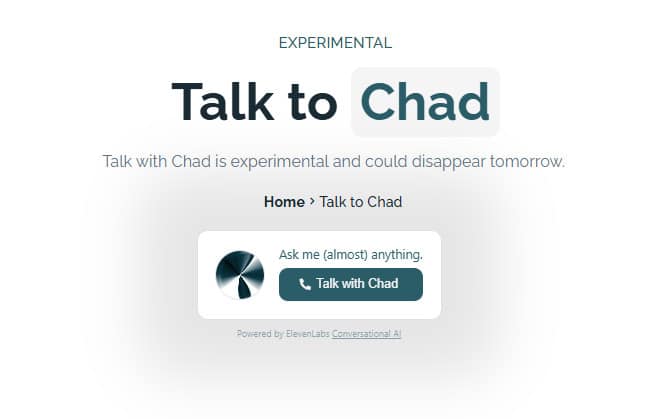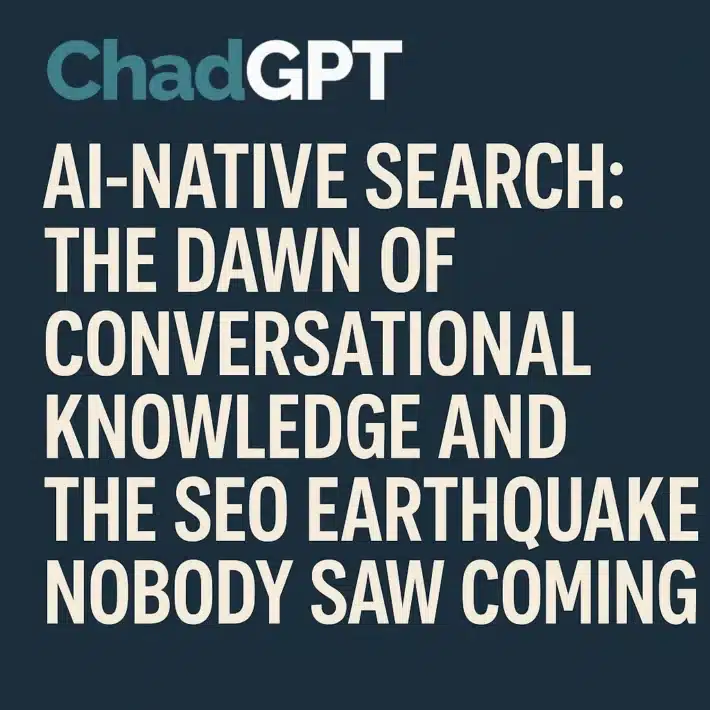Can I talk to an AI?


Ever thought about chatting with an AI? It’s a question that’s popping up more as tech keeps evolving. These days, tons of folks are turning to AI chatbots for answers, content creation, and even sprucing up their daily routines. Thanks to natural language processing, these tools get what we’re saying and reply in a human-like way. Let’s break down how chatting with AI actually works and what topics you can dive into with these smart systems.
Understanding AI Communication
When it comes to chatting with AI assistants, a few things can make or break the experience. First off, natural language processing is like the brain of the AI, helping it make sense of what you say. For small businesses, this means an assistant can remember what your customers like and respond in a friendly way.
AI is always learning, too. By sifting through heaps of text and conversation, it gets better at chatting over time. But let’s keep it real—there are some hiccups. AI might trip over slang, idioms, or complicated sentences, which can lead to some awkward moments. And let’s not forget, AI lacks those warm, fuzzy feelings we humans have. So, while it’s awesome to have a chat assistant, being aware of its quirks can help you have a smoother conversation. Just keep your expectations in check, and you’ll be golden!
Can I talk to an AI? The Basics
When chatting with an AI assistant, it’s best to keep the language straightforward and clear. AI gets what we say through a method called natural language processing, which helps it figure out words and phrases. It looks at tons of text and speech data to do this. For instance, small businesses can let AI handle customer inquiries swiftly and accurately. While AI might not capture every little nuance of human chat, it allows for meaningful exchanges.
It can remember preferences and offer relevant info, making the interaction feel more personalized. Many folks appreciate AI because it’s there to help whenever they need it, day or night, no human required.
Popular AI Platforms for Communication
ChatGPT
An AI chat assistant brings the feel of a real conversation, making interactions both fun and informative. It’s powered by advanced tech like natural language processing, so it gets what you say and responds in a way that makes sense. This means it can quickly answer questions or lend a hand, perfect for small businesses wanting to boost customer service.
Imagine asking about product availability and getting a quick, useful reply—no waiting around. This handy tool keeps things running smoothly, pleasing customers and helping businesses thrive. It’s about saving time and keeping everyone happy, which is what really matters for small businesses.
ChadGPT

This feature is experimental, (and could disappear at any time), but give it a shot.
Google Assistant

An AI chat assistant has a variety of cool features that make it engaging. It can help set reminders, provide weather updates, and answer questions—perfect for small businesses looking to enhance customer service with quick responses. Thanks to natural language processing, the assistant gets what users mean by analyzing data, allowing it to respond accurately and effectively. This means chatting with the assistant feels like talking to a real person.
Plus, it works great with other smart devices, like lights and thermostats, so you can control your space without lifting a finger. Just say, “Turn off the lights,” and watch it work its magic. This seamless connection not only adds convenience but also makes the user experience much more enjoyable.
Siri

Siri shines as an AI chat assistant by providing a variety of features such as voice recognition, personalized responses, and seamless integration with devices. This makes it easy for users to ask questions, set reminders, or manage smart home gadgets. The voice recognition tech helps Siri grasp and interpret spoken commands, creating a more user-friendly experience, particularly for small businesses that thrive on hands-free functionality.
Over time, Siri has adapted by learning from user interactions, enhancing its knack for understanding context and preferences.
As a result, it offers customized advice and suggestions, streamlining everyday tasks and boosting efficiency for users.
Can I talk to an AI? Use Cases
Customer Service
Businesses can enhance customer service by implementing an AI chat assistant that processes extensive data, enabling it to accurately address customer questions. For small enterprises, this addition results in better customer experiences through instant replies and personalized support, even after hours. The AI chat assistant also retains customer preferences, making every interaction feel customized and considerate.
To tackle any concerns during AI chats, many companies have established guidelines that oversee conversations for potential issues, allowing human representatives to intervene when needed. This combination of AI tools with human supervision offers a more seamless experience, aiding in swiftly resolving any challenges customers may face.
Personal Assistance
An AI chat assistant can take care of things like scheduling appointments, sending reminders, and tackling those common questions that pop up for small businesses. Users want these assistants to make their daily grind smoother so they can tackle what truly matters.
For example, an AI can be there for a small business owner round the clock, managing customer inquiries and ensuring quick responses without the stress.
A friendly, professional vibe is typically the ticket for these interactions, as users look to create a positive experience for themselves and their customers. It’s also a big plus if the assistant can remember specifics like preferred meeting times or current promotions to make the service feel more personalized. By tuning in to user preferences, the AI chat assistant can amp up productivity and ease the everyday workload, helping small business owners make the most of their time.
Education and Tutoring
An effective tutor knows that every student has their own way of learning, so they adapt their teaching styles accordingly. For instance, some students might grasp ideas better with visuals, while others may thrive with hands-on activities or lively discussions. To gauge student understanding, tutors frequently check in through quizzes, casual conversations, or practical exercises. Plus, technology today offers exciting options for tutoring.
For example, an AI chat assistant can give instant help, letting students ask questions anytime, which is especially valuable for small businesses offering tutoring. These AI tools make learning more interactive and easier to access, promoting student growth and success.
How AI Understands Human Language
AI systems interpret human language using methods like natural language processing (NLP) and machine learning. NLP helps the AI chat assistant break down sentences, identify words, and see how they connect. For instance, when a user asks a question, the AI analyzes it to understand the underlying meaning. Thanks to advancements in NLP, the AI can better grasp context and meaning in conversations, including jokes and sarcasm, which can be a bit tricky.
Machine learning also contributes significantly, allowing the AI to learn from vast amounts of data, including conversations and queries. Small businesses gain from this tech as it enhances customer interactions by making responses more accurate and relevant. As AI keeps learning from these experiences, it gets better at managing subtle language differences, ensuring it can respond appropriately in various situations.
Benefits of Talking to AI
Interacting with an AI chat assistant can seriously boost personal growth and learning.
For example, small business owners often turn to AI for quick answers about best practices, speeding up their learning curves. Engaging with AI can also streamline tasks like scheduling and reminders, so you can redirect your energy toward what really matters. This not only saves time but also cuts down on stress. Plus, AI has a knack for enhancing problem-solving and decision-making by crunching data and offering insights. If you’re up against a hurdle, such as figuring out the best marketing approach, an AI chat assistant can throw out suggestions based on past successes, helping you make smarter choices. This combo of learning, efficiency, and improved decision-making could really amp up productivity and boost your confidence in what you do.
Challenges in AI Communication
When folks try to chat with AI assistants, they bump into a few roadblocks. One major issue is that AI often struggles to fully grasp how humans communicate. Language is a wild ride, filled with slang, emotion, and subtle meanings that can trip up an AI. Take “feeling blue” for example; the AI might just think someone’s talking about a color instead of recognizing the sadness behind it. This inconsistency leads to some awkward mixes in communication.
On top of that, ethical concerns add another layer of complexity. Small businesses need to ensure their AI behaves fairly and respectfully. If an AI is programmed with a narrow viewpoint, it might inadvertently offend someone, making for a not-so-great experience. So, chatting with AI isn’t always straightforward, given the quirks of human language and the ethical challenges at play.
Future of Human-AI Conversations
Future improvements in natural language processing are set to enhance how we communicate with AI chat assistants, making these conversations feel more natural. Small businesses could tap into these advancements to gain better insights into customer questions and deliver more precise responses. As AI systems get better at understanding emotions, they might respond in ways that feel more supportive and personalized, creating a sense of connection.
This could lead to stronger relationships, as users appreciate interacting with machines that seem to “get” them.
Additionally, integrating AI into everyday communication tools could transform how we use technology, making it an effortless part of our daily lives. For instance, people might turn to AI chat assistants not only for completing tasks but also as helpful companions for managing schedules, reminders, and leisure suggestions, blending technology seamlessly into personal routines.
FAQ
What is an AI, and how can I talk to one?
An AI (Artificial Intelligence) is a computer program designed to simulate human-like conversation. You can talk to one using chatbots like ChatGPT or virtual assistants like Siri and Alexa. Simply type or speak your questions or commands to interact.
Are there specific platforms or applications where I can interact with AI?
Yes, you can interact with AI on platforms like ChatGPT, Google Assistant, and Amazon Alexa. Applications like Replika and Microsoft Teams also incorporate AI features for various tasks.
Can I have a natural conversation with an AI, or will it be robotic?
Yes, you can have a natural conversation with AI by using casual language, asking open-ended questions, and providing context. For example, ask, “What do you think about new movies?” or share your thoughts first to encourage a more engaging dialogue.
Is it safe to share personal information when talking to an AI?
It’s best not to share personal information with AI. Avoid details like your full name, address, or financial info. Use generic terms instead; for instance, say “my city” rather than “New York.” Prioritize your privacy to stay safe.
How can I improve my interactions with an AI for better responses?
Be specific with your questions; for example, instead of asking, “Tell me about history,” try “What were the main causes of World War I?” Provide context if needed, and ask follow-up questions to clarify or expand on responses. This enhances understanding and improves the quality of answers.


